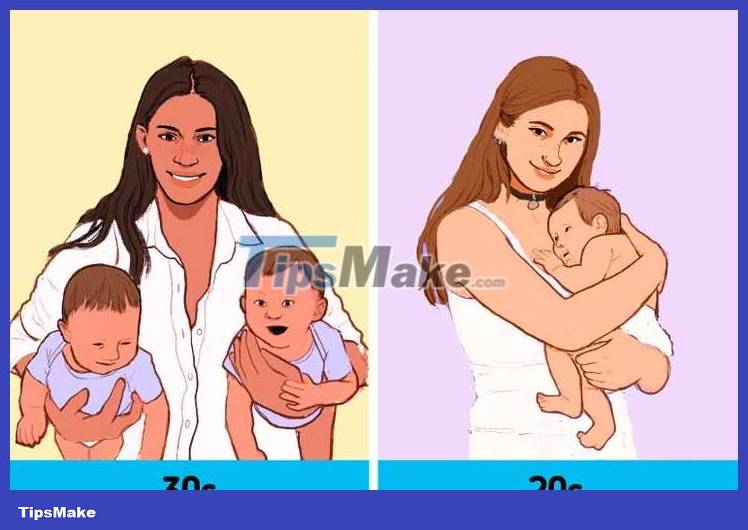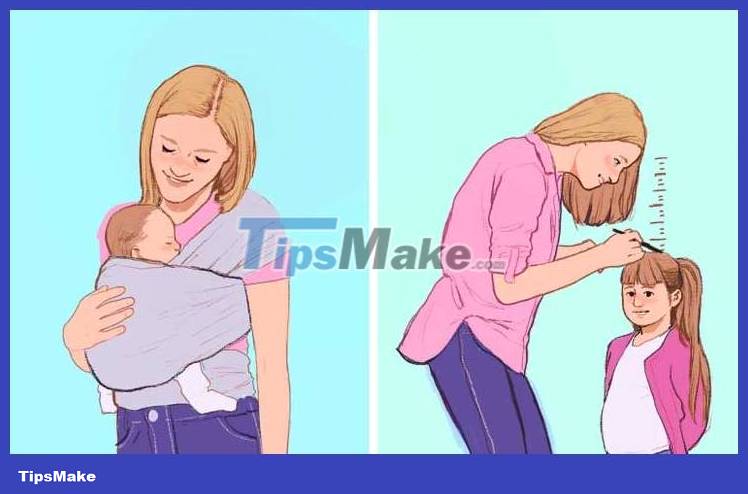The advantages and risks you may face of having children in your 20s and 30s

Advantages of having children in your 20s
It's easy to get pregnant because you're at your most fertile age
At age 25, you are more likely to conceive after 3 months of trying (about 20%) than when you turn 35 (this drops to about 12%). Women are born with all the eggs they have (about 1 million). Fertility begins to decline at age 32, and the decline accelerates after age 35. At age 37, it's estimated that you have about 25,000 eggs left.
Reduces the risk of miscarriage and other risks during pregnancy
Unlike women 35 years of age and older, young mothers are less likely to be obese and have high blood pressure during pregnancy. If you don't have these problems and have good egg quality in your 20s, your odds of miscarriage or stillbirth will be low.
Advantages of having children at age 30
You can earn more money so you can spend more freely
People often start their careers in their 20s, so taking care of a baby can be more expensive than being more financially stable in your 30s. According to a study in Denmark, people who First mothers ages 31-34 with a college degree will earn about $5,000 more than the median income over their lifetime. On the other hand, those who have children before age 25 will earn about $80,000 less.

You may have two or three
While this can be a downside, having multiple pregnancies means you can parent multiple children as you mature and are more ready. That's good news if you want lots of kids but only want them after turning 30. After all, fertility declines, but the chance of having twins increases with age because hormonal changes cause more Eggs are released at the same time.
You may live longer
One study found that women who had their last child after age 33 were twice as likely to live past age 95 than women who had their last child earlier. So, delaying pregnancy gives you the benefits of not only improving yourself in your 20s and making more money in your life, but also helping you live longer. This means you will have more years to watch your children and family grow.
Children can be smarter and taller
A study in the UK found that women who gave birth to their first child between the ages of 30-39 were more likely to have intelligent children than mothers aged 20-29. Another study also found that older mothers are more likely to have children. Since most people appreciate people with intelligence and stature, you can completely wait until your 30s to have children.

Risks of giving birth at age 20
Psychologically more tired
20 is the best age to discover yourself and the path you want to take in life. Giving birth during this time often causes you to pause your career or postpone the passion you want to pursue. Relationship problems also arise from sharing responsibility for taking care of the baby. Compromise is not easy, especially when both are at the age of asserting themselves through their careers.
You may have worse health problems later
There appears to be a link between a mother's health and the age at which she gives birth to her first child. The longer a woman delays her first pregnancy, the better her health is predicted to be. Maximum health is predicted for mothers who give birth to their first child in their 30s. Therefore, younger mothers may be at greater risk of health problems and back pain.
Risks of giving birth in your 30s
More likely to require cesarean section
Older mothers are at higher risk of pregnancy complications, so they are more likely to have to have a cesarean section. For example, if you encounter problems such as high blood pressure, preeclampsia. it is difficult to avoid. In addition, because of cesarean section, recovery takes longer than normal birth.
The baby's risk of complications is higher
Women who give birth in their 30s often have lower birth weight babies and are more likely to have premature births. This is especially likely to happen to mothers pregnant with twins. Premature babies are often susceptible to health problems such as respiratory failure, slow learning or poor hearing. In addition, babies are at higher risk of having chromosomal abnormalities than women born in their 20s.
Currently, there really is no standard age for having children. It all depends on each woman's priorities. Perhaps the best age to become a mother is when a woman herself is ready.
You should read it
- ★ Instructions for registering birth certificates online
- ★ Scientific proof: Month of birth has an impact on human health and personality
- ★ Calculation of age from date of birth in Excel
- ★ Vitamin B12 deficiency during pregnancy increases the risk of premature birth
- ★ Birth control pills may increase your risk of breast cancer